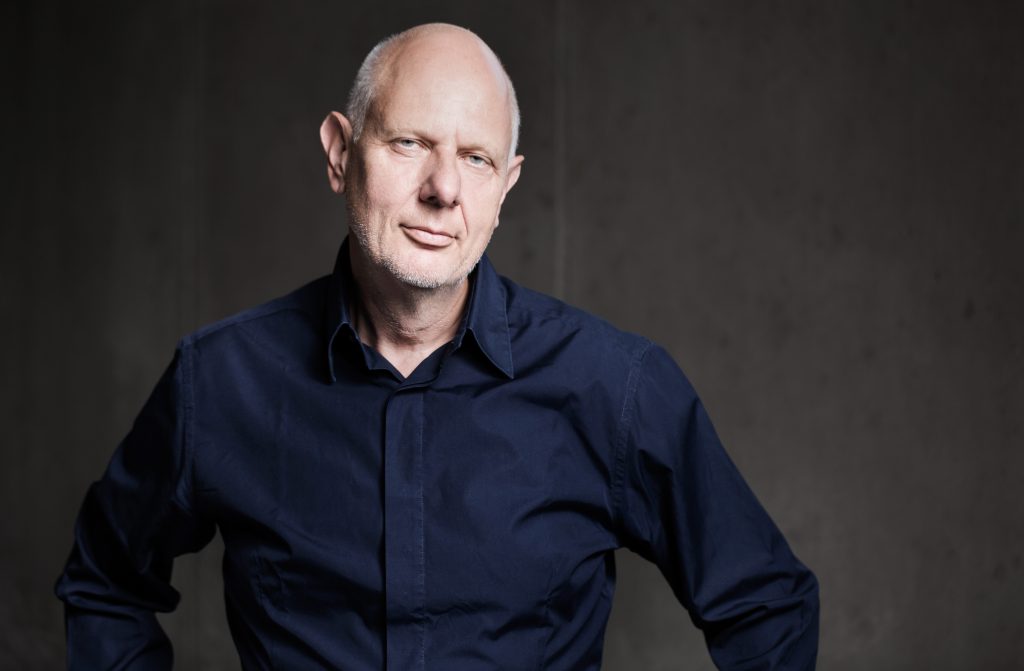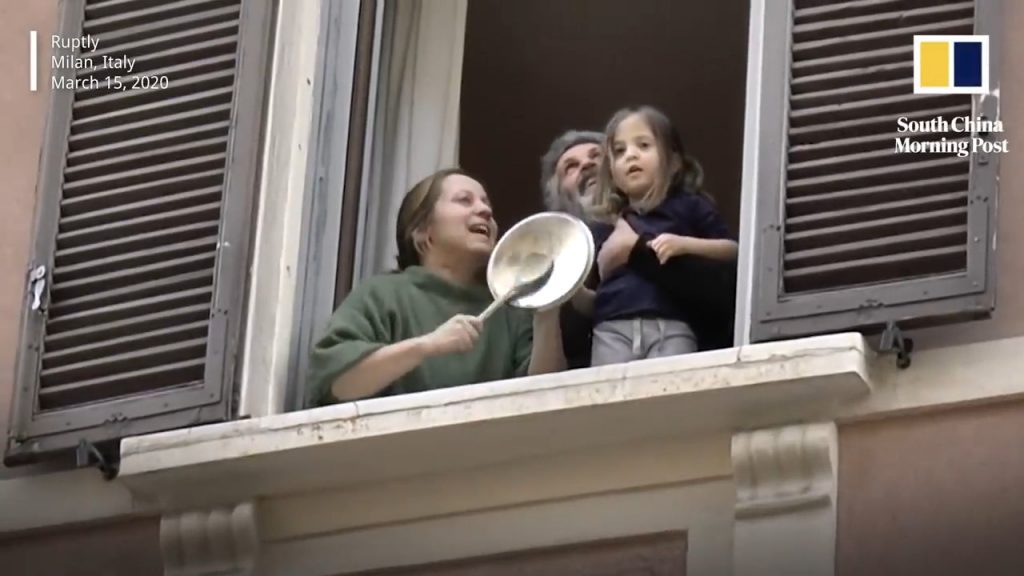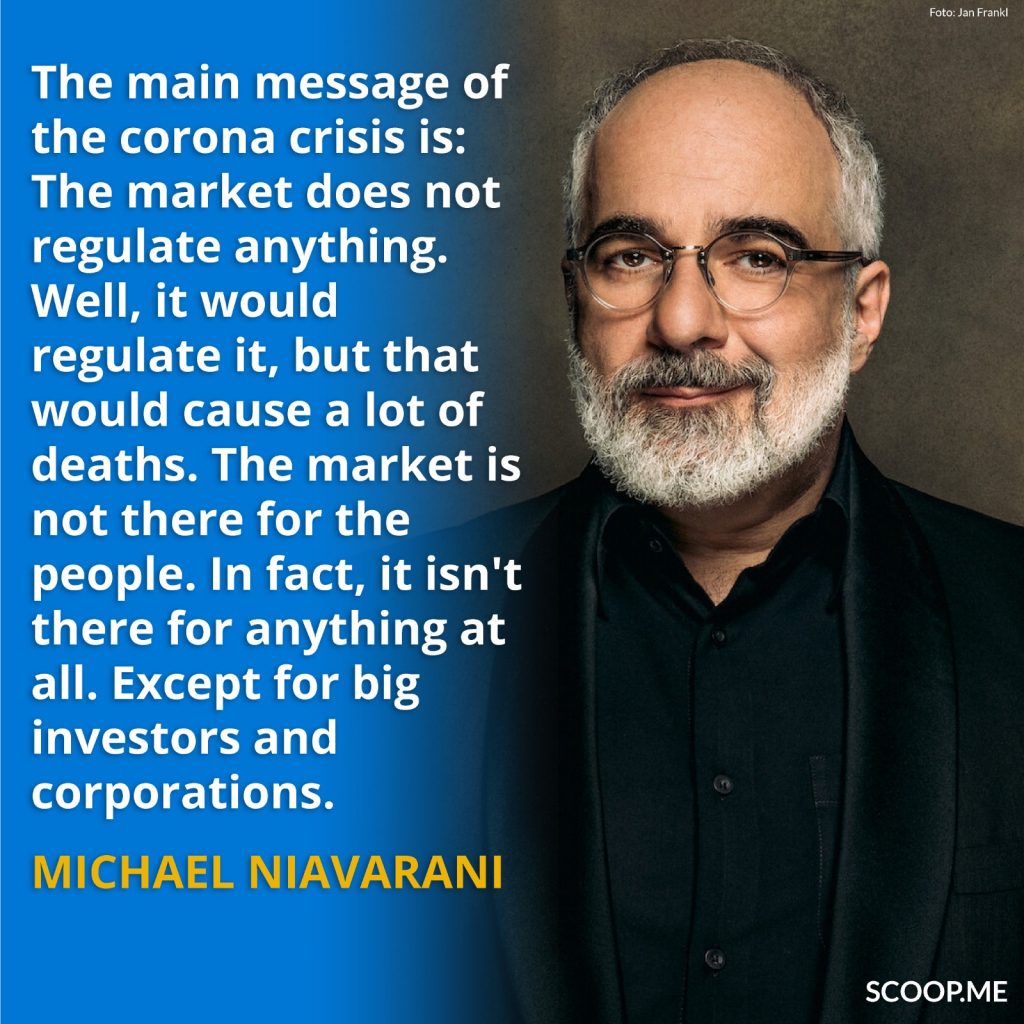“I am often asked these days when Corona will “be over” and everything will return to normal. My answer: never. There are historical moments when the future changes direction. We call them bifurcations. Or deep crises. This is one of those times.” Futurologist Matthias Horx shows in his corona reverse forecast how we will be surprised when the crisis is ‘over’.
The world as we know it is dissolving. But behind it, a new world is coming together, the shape of which we can at least guess. To do so, I would like to offer you an exercise which we successfully use for vision processes in companies. We call it the ‘RE-Gnose’ (re-gnosis). In contrast to the ‘PRO-Gnose'(prognosis), we do not look ‘into the future’ with this technology. Instead, we look BACK from the future to the present. Sounds crazy? Let’s give it a try:
Matthias Horx “Re-Gnose”: Our world after corona
Imagine a situation in autumn, say September 2020. We are sitting in a street cafe in a big city; it’s warm, and people are moving around the street again. Are they moving differently? Is everything the same as before? Does the wine, the cocktail, the coffee taste the same? Like before Corona? Or even better? What will we wonder about in retrospect?
We will be surprised that the social sacrifices we had to make rarely led to loneliness. On the contrary. After an initial state of shock, many of us were even relieved that all the running, talking, communicating on multi-channels suddenly came to a halt. Renunciations do not necessarily mean loss, but can even open up new possibilities. This has been experienced by many people who tried interval fasting, for example – and suddenly enjoyed the food again. Paradoxically, the physical distance forced by the virus simultaneously created new closeness. We got to know people we would otherwise never have met. We contacted old friends more often, strengthened ties that had become loose and slack. Families, neighbours, friends, moved closer and sometimes even resolved hidden conflicts.
Social politeness, which we had previously increasingly missed, increased.
Now, in autumn 2020, the atmosphere at football matches will be very different from the spring, when there was a lot of mass rage. We wonder why that is.
We’ll be amazed at how quickly cultural techniques of the digital have suddenly become established in practice. Tele- and video-conferencing, which many of our colleagues had always resisted (the business plane was better), turned out to be practical and productive. Teachers learned a lot about educating students over the internet. The home office became a matter of course for many – including the improvising and time juggling that goes with it.
At the same time, seemingly outdated cultural techniques experienced a renaissance. Suddenly, you didn’t just catch the answering machine when you called, but real people. The virus brought about a new culture of making long calls without a second screen. Even the ‘messages’ themselves suddenly took on a new meaning. People were communicating for real again. You didn’t let anyone fidget any more. You didn’t string people along anymore. Thus a new culture of accessibility was created. A culture of commitment.

People who never slowed down from the hectic pace of life, even young people, suddenly went for long walks (a word that was rather foreign before). Reading books suddenly became a cult.
Reality shows suddenly seemed embarrassing. The whole trivia-trash, the endless soul garbage that was pouring through all channels. No, it didn’t disappear completely. But it lost value rapidly.
Does anyone remember the political correctness controversy? The endless culture wars over… yeah, what were they about?
The main effect of crises is that they dissolve old phenomena, make them redundant. Cynicism, that casual way of keeping the world at arm’s length through devaluation, was suddenly out.
The exaggerated fear-hysteria in the media was, after a short initial outburst, contained.
Besides, the endless flood of cruel crime series reached its tipping point.
We will be surprised that in the summer, medication was finally found that increased the survival rate. This reduced the death rate and Covid-19 became a virus that we just have to deal with – similar to the flu and many other diseases. Medical progress helped. But we have also learned: it wasn’t so much the technology but the change in social behaviour that was the key. The fact that people were able to remain in solidarity and work constructively together despite radical restrictions was the decisive factor. Human-social intelligence helped. In contrast, the much-vaunted artificial intelligence, which is known to be able to solve everything, only had a limited effect in the pandemic.
This has shifted the relationship between technology and culture. Before the crisis, technology seemed to be the panacea, the carrier of all utopias. Today, no one – or only a few hardened people – still believe in the great digital salvation. The great technology hype is over. We are once again directing our attention more to the humane questions: What is man? What are we for each other?
We marvel at how much humour and humanity actually developed in the days of the virus.
We will be surprised how far the economy could shrink without something like “collapse” actually happening, which was previously conjured up with every tax increase, no matter how small, and every state intervention. Although there was a “black April”, a deep economic slump and a 50 percent stock market slump, although many companies went bankrupt, shrank or mutated into something completely different, it never came to zero. It was as if the economy was a breathing being that could also doze or sleep, even dream.
Today in autumn, there is a global economy again. But the global just-in-time production, with huge branched value chains, where millions of individual parts are carted across the planet, has survived. It is being dismantled and reconfigured. All over the production and service facilities, intermediate storage facilities, depots, reserves are growing again. Local productions are booming, networks are being localized, and craftsmanship is experiencing a renaissance. The global system is drifting towards “gloCALization”: localization of the global.
We will be surprised that even the loss of wealth due to the stock market slump does not hurt as much as we felt in the beginning. In the new world, wealth suddenly no longer plays the decisive role. More important are good neighbours and a thriving vegetable garden.
Could it be that the virus has changed our lives in a direction that they wanted to change anyway?
“RE-Gnose”: coping with the present by leaping into the future
Why does this type of ‘from the beginning’ scenario seem so irritatingly different from a classical forecast? It has to do with the specific characteristics of our sense of the future. When we look ‘into the future’, we usually only see the dangers and problems coming towards us, which pile up to form insurmountable barriers. Like a locomotive coming out of a tunnel and running over us; this barrier of fear separates us from the future. This is why horror futures are always the easiest to depict.
“Re-Gnosen”, on the other hand, form a knowledge loop in which we include ourselves, our inner change, in the calculation of the future. We connect inwardly with the future, and this creates a bridge between today and tomorrow. A ‘Future Mind’ – awareness of the future – is created.
If you do this correctly, something like future intelligence is created. We are able to anticipate not only the external events but also the internal adaptations with which we react to a changed world.
This feels quite different from a prognosis, which in its apodictic character always has something dead, sterile. We leave the rigidity of fear and get back into the liveliness that belongs to every true future.
We all know the feeling of a successful overcoming of fear. When we go to the dentist for treatment, we are worried long before. We lose control in the dentist’s chair and it hurts before it even hurts. In anticipation of this feeling, we escalate our fears until they can completely overwhelm us. However, once we have survived the procedure, we feel again that we can cope: the world seems young and fresh and we are suddenly full of energy.
To cope means to overcome. Neurobiologically, the fear adrenalin is replaced by dopamine, a kind of endogenous future drug. While adrenaline leads us to fight or flight (which is not really productive in the dentist’s chair, just as it is not productive in the fight against corona), dopamine opens our brain synapses: we are excited about what’s coming, curious, anticipating. When we have a healthy dopamine level, we make plans, have visions, which bring us into foresighted action.
Surprisingly, many people in the coronavirus pandemic experience exactly this. A massive loss of control suddenly turns into a veritable rush of positivity. After a period of bewilderment and fear, an inner strength develops. The world ‘ends’, but in the experience that we are still here, a kind of newness arises within.

In the middle of the shutdown of civilization we walk through forests or parks, or over almost empty places. But this is not an apocalypse, it’s a new beginning.
This is how it turns out: change begins as a changed pattern of expectations, of perceptions and world connections. Sometimes it is precisely the break with routines, with the familiar, that releases our sense of the future. The idea and certainty that everything could be completely different – even for the better.
Perhaps we will even be surprised that Trump will be voted out of office in November. The AFD is showing serious signs of fraying, because a vicious, divisive policy does not fit into a world tackling a pandemic. In the Corona crisis it became clear that those who want to set people against each other have nothing to contribute to real questions about the future. When things get serious, the destructive power residing in populism becomes clear.
Politics in its primal sense as the formation of social responsibilities gave this crisis a new credibility, a new legitimacy. Precisely because it had to act ‘authoritatively’, politics created trust in society. Science, too, has experienced an astonishing renaissance in the crisis. Virologists and epidemiologists became media stars, but also ‘futuristic’ philosophers, sociologists, psychologists, anthropologists, who had previously been on the fringes of polarized debates, regained voice and weight.
Fake news, on the other hand, rapidly lost market value. Even conspiracy theories suddenly looked like slow sellers, although they were offered like sour beer.
A virus as an evolutionary accelerator
Deep crises also point to another basic principle of change: the trend-counter-trend synthesis.
The new world after corona – or rather with corona – arises from the disruption of the megatrend connectivity. Politically and economically, this phenomenon is also called globalization. However, the disruption of connectivity – through border closures, separations, sealing-off, quarantines – does not lead to the elimination of connections. Rather, it leads to a reorganization of the connectivities that hold our world together and carry it into the future.  There is a phase shift in the socio-economic systems.
There is a phase shift in the socio-economic systems.
The coming world will again appreciate distance – and precisely because of this will make connectedness more qualitative. Autonomy and dependence, opening and closing, will be re-balanced. This can make the world more complex, but at the same time more stable. This transformation is largely a blind evolutionary process – because the one fails, the new, viable, prevails. This makes you dizzy at first, but then it proves its inner meaning: sustainability is that which connects the paradoxes on a new level.
This process of complexation – not to be confused with complication – can also be consciously designed by people. Those who can do this, who speak the language of the complexity to come, will be the leaders of tomorrow. The becoming bearers of hope. The coming Gretas.
“Through Corona we will adjust our entire attitude towards life – in the sense of our existence as living beings in the midst of other life forms.” Slavo Zizek at the height of the corona crisis in mid-march
Every deep crisis leaves behind a story, a narrative that points far into the future. One of the strongest visions left behind by the coronavirus are the Italians playing music on the balconies. The second vision is sent to us by satellite images that suddenly show the industrial areas of China and Italy free of smog. In 2020, the CO2-emissions of humans will fall for the first time. This fact will do something to us.
If the virus can do that – can we possibly do that? Maybe the virus was just a messenger from the future. Its drastic message is that human civilization has become too dense, too fast, too overheated. It’s racing too fast in a direction where there is no future.
But it can reinvent itself.
System reset.
Cool down!
Music on the balconies!
This is how the future works.
Source: Matthias Horx / www.horx.com / www.zukunftsinstitut.de
